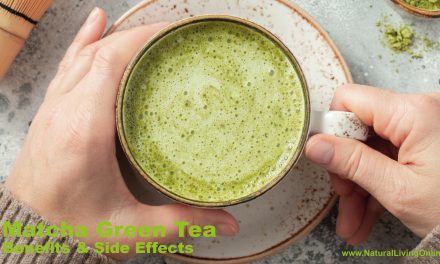Lemon tea is not just a refreshing drink; it’s a powerhouse of health benefits. From boosting your immune system to aiding digestion and weight loss, lemon tea can significantly improve your well-being. Drinking lemon tea regularly can help detoxify your body and enhance skin health, making it an essential addition to your daily routine.
While lemon tea has numerous benefits, it’s important to be aware of potential side effects. Complications can arise for pregnant and breastfeeding women, and there can be issues with blood pressure and gastrointestinal health. Being informed about these concerns can help you make the best decisions for your health.
By understanding both the advantages and the potential drawbacks, you can better integrate lemon tea into your lifestyle. Whether you make it with fresh lemons or use pre-made mixes, knowing how to prepare and enjoy this citrus delight is key.
Key Takeaways
- Lemon tea boosts the immune system and aids digestion.
- There are some potential side effects, especially for pregnant or breastfeeding women.
- Knowing how to make and consume lemon tea can maximize its benefits.
Health Benefits of Lemon Tea

Lemon tea offers several health benefits, thanks to its rich vitamin C content and antioxidants. It enhances immune function, supports digestion, aids weight loss, promotes heart health, and improves skin condition.
Boosts Immune System
Lemon tea helps strengthen the immune system due to its high vitamin C content. Vitamin C acts as an antioxidant that protects cells from damage. It also stimulates the production of white blood cells, which are crucial for fighting infections. This vitamin helps reduce the duration of common colds and other respiratory conditions.
Regular consumption of lemon tea can keep common illnesses at bay and improve overall immune health.
Aids Digestion and Weight Loss
Lemon tea improves digestion by stimulating the production of bile and gastric juices. This helps break down food more efficiently. The acidic nature of lemon can also aid in cleansing the digestive system, which prevents bloating and constipation.
Lemon tea is low in calories, which makes it a good beverage for those looking to lose weight. Drinking lemon tea can boost metabolism, helping the body burn more calories throughout the day. This boost in metabolism supports natural weight loss efforts.
Promotes Heart Health
Lemon tea promotes heart health by reducing bad cholesterol levels. The flavonoids in lemon are known to improve blood vessel function, which helps maintain healthy blood pressure levels. Lemon also contains potassium, which is essential for heart health.
Regular consumption of lemon tea can keep the heart functioning well and reduce the risk of heart diseases.
Improves Skin Health
The vitamin C and antioxidants in lemon tea improve skin health by protecting against damage from free radicals. Vitamin C aids in the production of collagen, a protein that keeps skin firm and elastic. Drinking lemon tea can help reduce the appearance of wrinkles and fine lines.
Lemon tea’s detoxifying properties help clear the skin from within, leading to a healthier and more radiant complexion. The hydration from the tea also promotes better skin health.
Nutritional Profile of Lemon Tea

Lemon tea is known for its refreshing taste and health benefits, which largely come from its rich nutritional profile. It contains essential vitamins, minerals, and antioxidants.
Vitamins and Minerals
Lemon tea is rich in Vitamin C, which is a powerful antioxidant that helps protect cells from damage. It can support the immune system, improve skin health, and help heal wounds.
Potassium is another important mineral in lemon tea. It helps regulate blood pressure and fluid balance in the body.
Other minerals include magnesium, which supports muscle and nerve function, and small amounts of fiber from fresh lemon slices.
Lemon tea can also contain trace amounts of other beneficial elements like B vitamins and calcium, contributing to overall nutrition.
Hydration and Antioxidant Properties
Drinking lemon tea can help keep the body well-hydrated. The combination of water, lemon, and sometimes honey or ginger brings hydration and a burst of flavor.
Lemon tea’s antioxidant properties are notable due to its high content of flavonoids and Vitamin C. These antioxidants help fight free radicals, reducing oxidative stress.
The presence of citric acid not only adds a tangy flavor but also helps in detoxification. This acid can promote the release of certain toxins from the body.
Drinking lemon tea can contribute to better overall health by keeping the body hydrated and providing important antioxidants.
Potential Side Effects of Lemon Tea

Lemon tea offers numerous health benefits, but it also comes with potential side effects. Some issues may arise from consuming lemon tea due to its acidity, caffeine content, and interactions with certain health conditions and medications.
Concerns for Specific Health Conditions
Lemon tea can irritate people with acid reflux or heartburn due to its acidic nature. The citric acid in lemon may worsen these conditions, causing discomfort and pain.
Another issue is its effect on dental health. The acidity in lemon tea can erode tooth enamel, leading to sensitivity and cavities. Using a straw can help reduce contact with teeth.
People with diabetes should watch their sugar intake. Sweetening lemon tea adds extra sugar, which can spike blood sugar levels and complicate diabetes management.
Pregnant and breastfeeding women need to be cautious. The caffeine in regular tea can affect the baby, and excessive lemon may lead to gastrointestinal distress.
Lemon tea may also pose a risk for those with canker sores. The acid can aggravate these sores and slow healing.
Interactions with Medications
Lemon tea may interact with certain medications. For those on blood pressure medications, the caffeine can elevate blood pressure, affecting the medication’s effectiveness.
Citrus fruits, including lemon, can interact with drugs metabolized by the liver. This interaction can alter the levels of medication in the bloodstream, either reducing its efficacy or increasing the risk of side effects.
Antibiotics can also interact with lemon tea. The acidity and components in lemon can affect the absorption of some antibiotics, diminishing their effectiveness.
People taking diabetes medications need to be cautious with sweetened lemon tea. Increased sugar levels can interfere with blood sugar control, making it harder to manage the condition.
Preparation and Consumption Tips
Lemon tea can be a refreshing and beneficial beverage when prepared and consumed correctly. It’s important to choose fresh lemons, follow simple recipes, and practice moderation in intake.
How to Select and Store Lemons
Choosing fresh lemons is key. Look for lemons that are bright yellow with a smooth skin. They should feel firm when gently squeezed.
Store lemons in the refrigerator to keep them fresh for up to a month. If you plan to use them within a week, you can keep them at room temperature.
Avoid storing lemons in plastic as it can trap moisture, leading to mold. Instead, place them in a breathable bag or a bowl.
Lemon Tea Recipes for Daily Enjoyment
A basic lemon tea recipe starts with boiling water and adding a slice of fresh lemon. For added flavor, consider including ingredients like honey, ginger, or mint.
Basic Recipe:
- Boil water.
- Pour over a slice of lemon.
- Let it steep for 3-5 minutes.
Enhanced Recipe:
- Boil water.
- Add a slice of lemon and a piece of ginger.
- Sweeten with honey and garnish with mint leaves.
- Let it steep for 5-7 minutes.
For a more traditional taste, you can use black tea instead of plain water. Add a stick of cinnamon for a spiced twist.
Best Practices for Lemon Tea Intake
Moderation is important when consuming lemon tea. Drinking 1-2 cups a day is generally considered safe and effective for reaping lemon tea benefits.
Avoid drinking lemon tea on an empty stomach, as the acidity can cause discomfort. It’s best to enjoy it after meals.
For variety, try different recipes. Adding ginger can aid digestion, while honey can soothe the throat. Remember to balance intake with plenty of water to prevent dehydration.
Integrating Lemon Tea into Your Health Regimen

Lemon tea can be part of a healthy lifestyle by combining it with complementary foods and incorporating it into a balanced diet. It is essential to pair lemon tea with other nutritious options to maximize its benefits while considering any potential side effects.
Complementary Foods and Drinks
Lemon tea pairs well with several foods and drinks. Including it with meals rich in antioxidants like berries, nuts, and green leafy vegetables can boost immune function and overall health.
Fresh lemons provide a natural source of vitamin C, which enhances the tea’s immune-boosting properties.
Eating foods high in fiber, such as whole grains and legumes, alongside lemon tea may improve digestion. These combinations help in maintaining a healthy weight and keep calorie intake in check.
Drinking lemon tea with a balanced breakfast, including items like yogurt and fruit, can provide sustained energy throughout the day.
Incorporating Lemon Tea in a Balanced Diet
Incorporating lemon tea into a balanced diet involves moderation. It is crucial not to overconsume, as the acidity can affect dental health.
Enjoy lemon tea hot or iced, based on personal preference. Adding honey or ginger can enhance its taste and provide additional health benefits including improved digestion and better heart health.
Using organic lemons ensures that the tea remains free of pesticides. Including lemon tea as part of a daily routine can support weight management and detoxify the body.
Pair lemon tea with meals or snacks throughout the day to aid in hydration and boost metabolism effectively.
For optimal benefits, make fresh lemon tea at home to control the ingredients and minimize added sugars. Incorporating it into a diet rich in polyphenols and antioxidants can improve overall health markers.
Frequently Asked Questions
What are the possible side effects of consuming lemon tea regularly?
Consuming lemon tea can lead to gastrointestinal issues such as diarrhea or heartburn. Pregnant and breastfeeding women should be cautious due to caffeine content in some lemon teas.
Can drinking lemon tea lead to any gender-specific health issues?
Lemon tea generally does not cause gender-specific health issues. Pregnant women should be careful because caffeine in some lemon teas may affect pregnancy.
How might lemon tea affect overall skin health?
Lemon tea can improve skin health by helping to prevent acne and wrinkles. It aids in collagen production due to its vitamin C content.
Is there an optimal time of day to drink lemon tea for maximum benefits?
Drinking lemon tea in the morning can boost digestion and metabolism. At night, it can also soothe and relax the body.
Does incorporating lemon tea into one’s diet assist in body detoxification?
Yes, lemon tea aids in detoxifying the body. It helps flush out toxins due to its diuretic properties.
Are there any known disadvantages to the daily intake of lemon tea?
Some known disadvantages include stomach discomfort or heartburn. Excessive consumption may also aggravate symptoms in people with high acidity.
References:
Phenolic Contents and Antioxidant Activities of Green Tea with and without Lemon
Comparative assessment of antibacterial efficacy of aqueous extract of commercially available black, green, and lemon tea: an in vitro study
This website does not provide medical advice.
All information provided on this website, and on associated social media networks, including but not limited to texts, images, and numbers are for general information purpose only. It is not intended as medical advice and it does not include all possible precautions, side effects, or interactions that may occur. Neither NaturalLivingOnline.com nor its author/founder take responsibility for how you use this information. Statements contained on NaturalLivingOnline.com have not been evaluated by the FDA. You should conduct thorough research via multiple sources and consult your physician or qualified doctor before using any essential oil or herbal remedy. Information on NaturalLivingOnline.com must not be relied upon for medical, legal, financial or other decisions.













